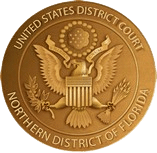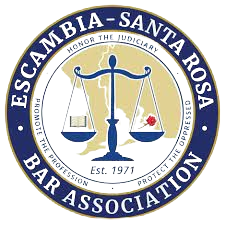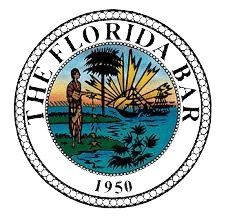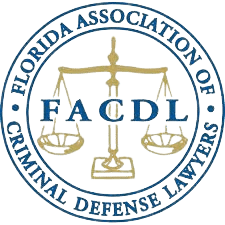Fraud Laws in Florida
Under Florida’s theft laws, fraud has a broad scope of offenses that involve deceit or intentional misrepresentation to secure property from another person without that person’s consent. It is considered a white-collar crime typically involving nonviolent, financially motivated offenses. Other white-collar crimes include embezzlement, insider trading, and money laundering. These crimes are often complex and require a deep understanding of financial systems and regulations.
Florida law classifies fraud under various statutes, each addressing different fraudulent activities. These activities can range from credit card theft, forgery, and misleading advertisements to using another person’s identity.
Fraud Offenses in Florida
Fraud crimes encompass a range of activities. Some common examples include:
Identity Theft
Identity theft occurs when someone else’s personal information is used without permission for financial gain. Statute 817.568 explains that this information can include your name, Social Security number, credit card number, bank account number, and other personal information that others could use to access your accounts.
Credit Card Fraud
Credit card fraud is theft committed when another individual’s credit card or credit card information is used without prior authorization. As outlined by Florida statute 817.61, there are several different ways to commit credit card fraud. These include stealing cards, using stolen account information to create “clone” cards, and opening new accounts using stolen personal information.
Insurance Fraud
Insurance fraud happens when someone willfully gives falsified information to an insurance company to receive a benefit they usually wouldn’t be entitled to. False claims can include exaggerating the loss on a claim, staging accidents to get money for injuries that never happened, misclassifying flood damage as wind, theft, or fire, and more.
Mortgage Fraud
A mortgage underwriter or lender uses this financial crime to fund, purchase, or insure a mortgage loan. Both borrowers and mortgage lenders can commit this type of fraud. There are several reasons why borrowers or lenders commit mortgage fraud. The borrowers may want to retain their current home, while the lenders may want to maximize their profits on the transaction they’re facilitating.
Securities Fraud
In Florida, securities fraud involves illegal activities related to selling, purchasing, or offering securities. These can include making false statements about a company or its stocks, omitting material facts, and convincing others to make financial decisions based on that false information. Misleading clients and insider trading are two of the most common types of security fraud.
Fraud Penalties in Florida
The consequences of a fraud conviction in Florida vary. For instance, you could be charged with misdemeanor or felony fraud based on the dollar amount, the severity of the fraud committed, and your criminal history. However, penalties typically include time in custody, fines, and restitution to the victim.
First-Degree Felony Fraud in Florida
To be charged with a first-degree felony in Florida, someone must have devised a scheme to defraud and obtain property worth $50,000 or more. The punishment for this can include up to 30 years in prison, fines of up to $10,000, and restitution. First-degree fraud includes fraudulent use of personal identification and grand theft, such as theft rings or embezzlement schemes.
Second-Degree Felony Fraud in Florida
A second-degree felony for fraud in Florida can result in up to 15 years in prison and fines not exceeding $10,000. There are several different ways that second-degree fraud can be committed, including organized fraud and fraudulent use of personal identification information.
Third-Degree Felony Fraud in Florida
In Florida, third-degree felonies can include various offenses such as shoplifting and theft. A third-degree felony for fraud can lead to up to five years in prison and a $5,000 fine. Depending on the judge and the severity, your sentencing could include five years of probation.
Restitution & Other Penalties for Fraud
Fraud penalties often include prison and fines, but depending on the severity, additional consequences may apply. These can include restitution, where the offender pays the victim for losses; probation, allowing the convicted to remain in the community under supervision, and community service, which involves work to benefit the community. These measures aim to address the harm caused and support the offender’s reintegration into society.
Collateral Consequences of Fraud
The negative side effects of a fraud conviction in your background also go beyond direct penalties like imprisonment, fines, and probation. These can significantly impact various aspects of your life, including:
- Employment: Difficulty finding a job as employers often conduct background checks and may refuse to hire individuals with theft convictions.
- Housing: Challenges in securing housing since many landlords perform background checks and may deny rental applications or require higher security deposits.
- Education: Possible denial of admission to educational institutions or additional requirements such as background checks.
- Financial Aid: Ineligibility for certain financial aid programs.
- Public Benefits: Limited access to public benefits programs like food stamps and housing assistance.
- Professional Licenses: Risk of denial or revocation of professional licenses (e.g., for doctors, lawyers, teachers).
- Gun Rights: Prohibition from possessing firearms for those with felony theft convictions.
- Future Testimony: Use of the conviction to discredit you if you testify in court.
How a Pensacola Fraud Lawyer Can Help
Being convicted of fraud affects virtually every aspect of your life. But convictions are not guaranteed. There is a lot a knowledgeable and dedicated fraud defense lawyer can do to help your case.
A skilled fraud lawyer can review the evidence and charges against you to challenge the prosecution’s case. Your lawyer can advocate for your rights and ensure someone protects your interest at every stage. After reviewing the evidence and developing a strategy, the lawyer will work on dismissing or reducing the fraud charges, securing more agreeable penalties through a plea agreement, or arguing your case in a jury trial
Lead attorney Josef Mitkevicius went to Georgetown University Law Center and has the intelligence and experience defending against fraud charges required to guide and protect you in this moment. He understands the stresses and uncertainties of a fraud arrest in Pensacola, FL. Let him guide you toward the most beneficial outcome possible.
Defenses Against Fraud in Florida
When we represent you against fraud charges, we build a tailored defense that makes the most sense based on the evidence we’ve collected in your case. Here are some examples of defenses that can be used in a fraud case:
No Intent Defense
In a fraud case, the prosecution must prove that the defendant “intentionally” deceived or misrepresented facts to the other party, harming the other party. For example, if someone accidentally purchases an item using their friend’s personal information, that would not be considered fraud. However, if someone intentionally purchased something using their friend’s personal information and lied to them, that would be considered fraud.
Insufficient Evidence
While it may seem obvious, insufficient evidence can be one of the best ways to get a case dismissed. When there is no evidence to prove that the defendant committed fraud according to Florida or state law, insufficient evidence can potentially be used to dismiss a fraud case.
Mistaken Identity
This is a common defense in many cases, but it’s used more commonly in fraud cases. Mistaken identity is a criminal defense that claims the defendant is innocent and that a witness misidentifies them as the perpetrator of a crime. Since most fraud scams happen online, it’s not unheard of for someone to be arrested mistakenly when they have nothing to do with the alleged offense.
Non-fraudulent Statements
While statements can be false, not every statement is necessarily fraudulent. This can be a confusing distinction, but for a statement to be considered dishonest, it must contradict an existing fact. For example, if someone gave an opinion, that is not a fraudulent statement and can’t be used in your fraud case. However, if a person claims that they were not in a particular place when they were, that would be considered a fraudulent statement and could be used against you.
Entrapment
Entrapment is a largely misunderstood defense. Entrapment only occurs when a law enforcement or government official convinces someone to commit a crime they would not have otherwise committed. Being presented with an opportunity to commit a crime is insufficient to constitute entrapment.
FAQs: Fraud Crimes in Florida
What are my rights if I’m accused of fraud?
If you are accused of fraud, it’s important to remember you have the right to remain silent. You do not have to talk to law enforcement without an attorney. Be sure to sign documents or provide information only after consulting with an attorney. It’s crucial to inform your lawyer if your rights were violated during the arrest.
Can fraud charges be dismissed?
Yes, fraud charges can be dismissed if there is insufficient evidence to convict or if your rights were violated during the investigation. An experienced fraud lawyer can evaluate your case to identify these grounds for dismissal, potentially showing insufficient evidence to prove fraud beyond a reasonable doubt.
What is the difference between fraud and theft?
Fraud and theft both involve unlawfully taking property. However, fraud typically involves deceit or misrepresentation to gain something of value, often money or property. Examples include credit card fraud, insurance fraud, identity theft, and online scams. Theft involves intentionally taking property without consent or through force, with no intention of returning it. The key difference is that fraud involves deceiving the victim so they may not realize they’ve been defrauded.
Can fraud convictions be expunged?
In some cases, fraud convictions in Florida can be expunged from your record, depending on the nature of the offense and your criminal history. A fraud lawyer can help determine your eligibility for expungement and guide you through the process.
Don’t Face Your Fraud Charges Alone– Call Today
Besides the criminal penalties, fraud charges in FL can tarnish your reputation and limit future opportunities. With a skilled and dedicated Pensacola fraud lawyer, you can give yourself the best chance of achieving a favorable outcome. Let Mitkevicius Law, PLLC, review your options and stand up for you.
With 10+ years of experience and a record of success in fraud cases, contact a Pensacola criminal attorney today at 850-361-2142 for a free consultation.





